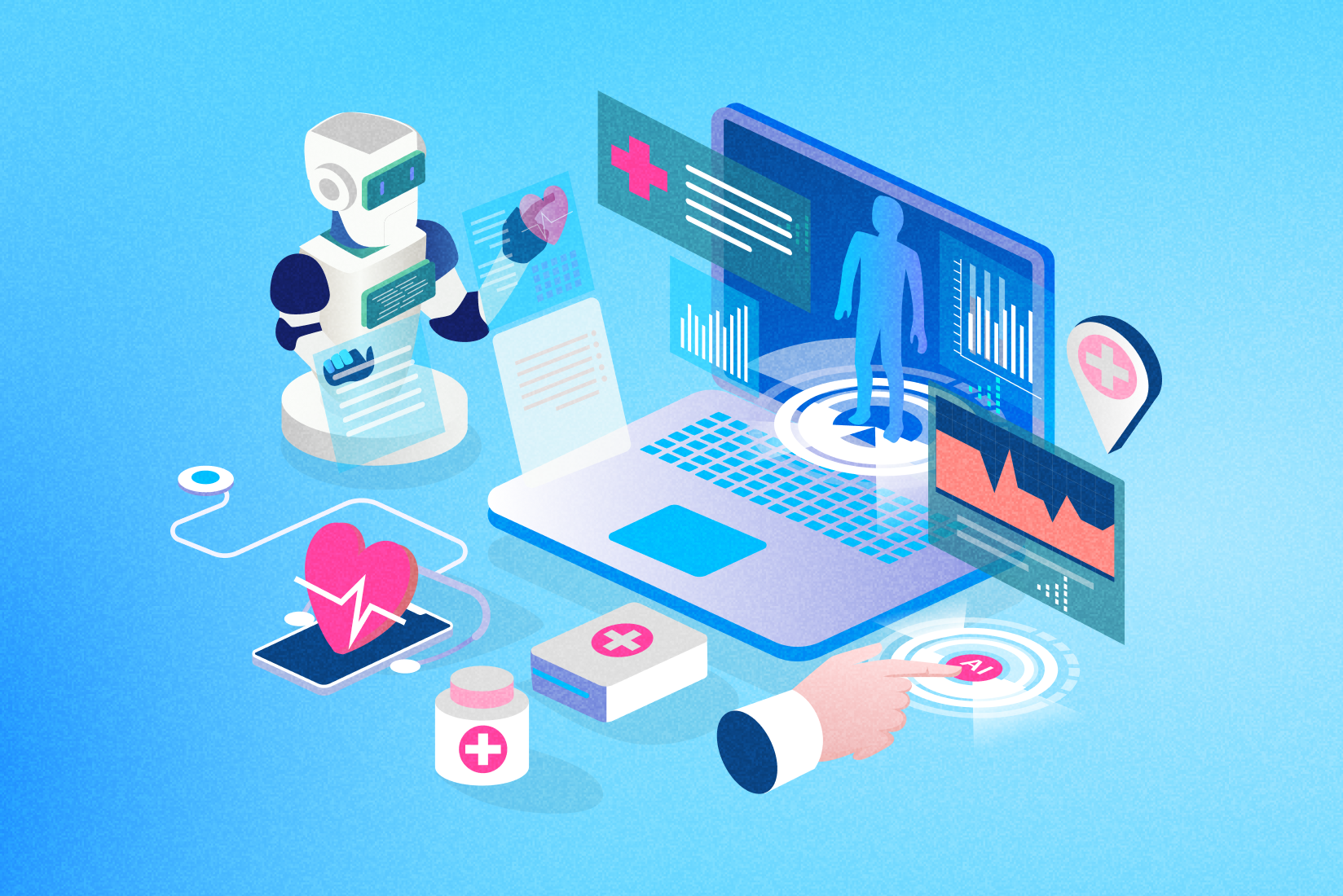Specifics of Being a Project Manager for a HealthTech Product
Healthсare projects have similar methodology, approaches, and technologies to projects from other domains. Anyway, there are some healthtech specifics project managers should take into consideration from the beginning of working on the product.

Take into account specific business requirements
While setting a task for the team a project manager in the healthcare domain is required to use a complex approach. They have to take into consideration specific business requirements of different countries as well as different states and regions.
Healthcare systems aren’t standardized. For instance, there are many differences in the International classification of diseases (ICD) in the USA and Europe. Sometimes you can face different requirements even within one country. A prime example is The United States where the requirements connected with collecting personal data and providing the insurance service differ from one state to another.
Moreover, most American insurance companies are sponsored by the government. From its side, the American government aims to reduce fraud risks connected with insurance claims. That’s why it collects patients’ personal information and controls the process.
In certain states, for example, in North Carolina, it’s required by the government to provide it with additional information about the patient when they are going to send a claim to any insurance company.
How does it influence product functionality?
– When a client from North Carolina is going to send an electronic claim to the insurance company for cost reimbursement, the system has to send additional information about him to a special government server for approving the case. This additional data can contain a client’s name, insurance, diagnosis, treatment plan, etc.
There’s one more specific function in Healthсare products that is rarely supported by applications from other domains. It is Telehealth, or just video calls. It means that a client can open his personal calendar and arrange an online appointment with a doctor. The only thing which is required from his side is to indicate that he needs a video consultation.
Meanwhile, there are several demands for healthtech applications that support Telehealth (as usual they concern data security).
Focus on protection of personal information
Protection of personal information is a fundamental requirement in a Healthcare sphere. For example, there are several enacted legislations in the USA which regulate interaction with patients’ personal data – HIPAA (Health Insurance Portability and Accountability Act). GDPR is the fundamental standard for the European market.
Their requirements don’t differ significantly. Anyway, when a company chooses the market for its product it’s necessary to consider if a technical partner possesses a GDPR or HIPAA certificate.
Protection of personal information becomes a fundamental requirement for any task a team carries out. Project managers as well as other team members take part in special HIPAA trainings yearly. Thanks to them, they understand how to protect a system from data leakage and how to prevent such cases at working places and on working devices.
Applications where users pay with credit cards are also demanded to pass regular verification of conformity with PCI (Payment card industry data security standards).
Remember about the high cost of a mistake in Healthcare products
Mistakes as well as their consequences can differ by scale. For example, a small bug in a template of an electronic claim can lead to its rejection by an insurance company. As a result, it wastes the patient's time and delays a payment to their doctor or clinic.
Healthtech teams deal with sensitive data. So it’s necessary to control who gets access to this or that information inside of one application.
The fact that a patient is under doctor A's care shouldn’t be known to doctor B. By the way, It’s possible to add separated access to a product without ruining the system and reworking the code even if it wasn’t announced in the MVP. The only requirement for it is proper architecture of the product.
It’s important to bear in mind that judicial actions against companies that leak personal information are quite widespread in the USA. It happens from time to time despite the fact that personal data protection has been a fundamental requirement for many years.
A company can be punished with a fine of millions of dollars. Moreover, some of such offenses can involve even criminal liability.
Plan fraud protection and detection carefully
There are many financial operations — paying bills, sending claims to insurance companies for сost reimbursement — in Healthcare products. That’s why it’s highly important to plan fraud protection and detection thoroughly.
The product should be very well-planned and organized to make the risk of fraud minimal.
What are the preventive recommendations for fraud protection?
While developing the product we aim to isolate one service from another. It means that a user doesn’t get access to all the functions immediately after registration. Access is given depending on some criteria: role, type of subscription, and data provided.
We try to plan a system properly to minimize fraud. For instance, we limit using some functions for clients who haven’t attached their credit cards to an account.
It’s also important to organise a payment system in such a way that users but not other platforms are responsible for clarity of financial transactions.
There is one more type of fraud connected with fake documents provided by clients.
For example, a user can send to an insurance company a claim made in Photoshop. In this case, it’s possible to identify a fake by examining critical documents for authenticity. You can recognise a fraud after analyzing the metadata contained in the document.
Be aware of high demands from experts working in Healthtech
For becoming a PM at a Healthcare project, you have to invest a lot of time in education. It happens because of specific requirements in this domain. Onboarding for project managers working in Healthtech usually takes from three to six months.
As you can see, you need more time in Healthtech than in other domains to get acquainted with all the business requirements. But it’s worth taking into account that Healthcare products have a longer life on the market.
Users of Healthcare platforms have some specifics that a project manager has to know and share with a team. For example, these clients are pretty conservative. It’s necessary to keep in mind this fact while planning a product design — it should be traditional, understandable, and comfortable.
Consider high social responsibility
Healthcare products aim to improve the quality of people’s life or help doctors in their work. It gives a team a chance to work on a really significant product, but at the same time requires them to be highly responsible.
Business owners sincerely aim to solve patients’ or doctors’ problems. The product a team develops is an instrument for this. Along with our partners, we are responsible for the quality of this solution and meeting their expectations.
We deal with financial operations as well as with sensitive data concerning people’s health and well-being. We do realize a high cost for any mistake.
That’s why we have some fundamental values that primarily concern protection of personal information, data security, availability of the app 24/7, and fraud detection.





